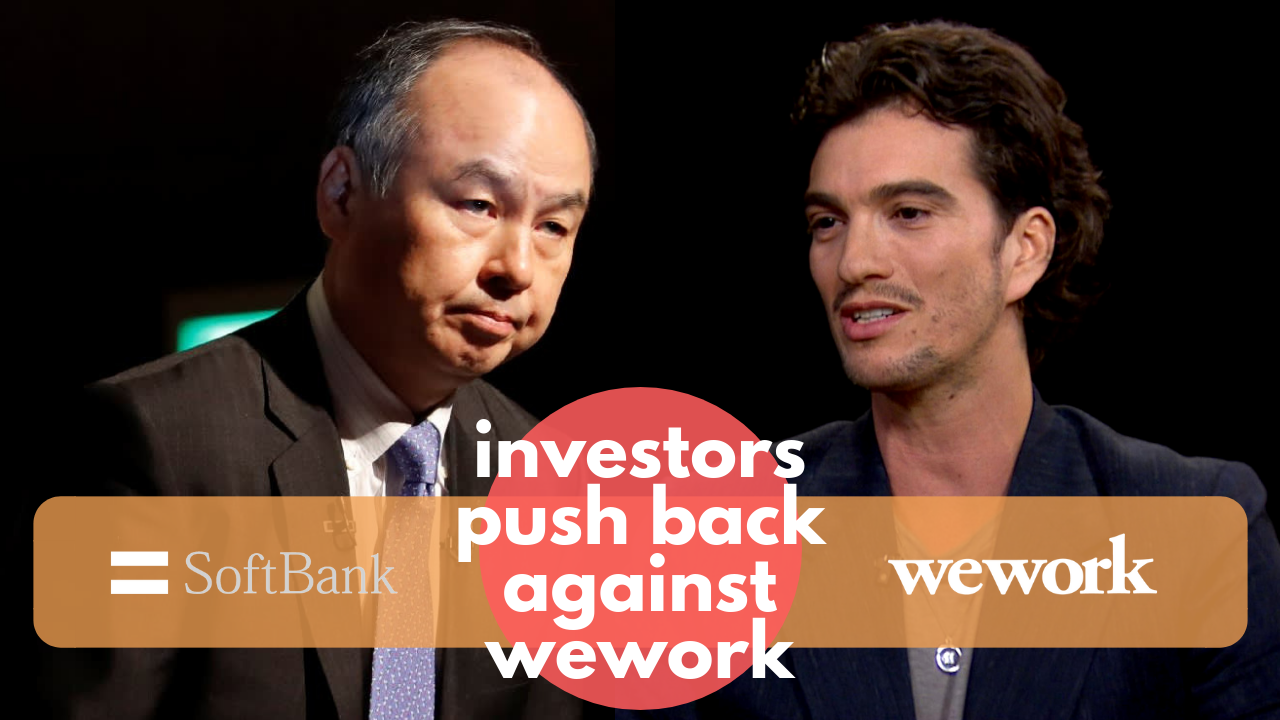- Key investors in SoftBank Group have questioned the Japanese conglomerate’s intention to take a majority stake in WeWork.
- SoftBank is WeWork’s largest investor; it poured $4.4 billion into the company last year and committed an additional $4 billion this year.
- Saudi Arabia’s Public Investment Fund and Abu Dhabi’s Mubadala Investment Co. pushback could stop WeWork from getting an additional $16 billion from SoftBank.
The Wall Street Journal (WSJ) reported earlier today (paywall) that Saudi and Abu Dhabi funds have questioned SoftBank’s plan to take a majority stake in WeWork.
SoftBank became WeWork’s largest investor last year (2017) when it poured $4.4 billion into the coworking giant. This year, the Japanese conglomerate committed another $4 billion, including $3 billion in November.
According to the WSJ, “key investors in SoftBank Group Corp.’s giant tech fund have balked at a planned 16 billion investment in co-working startup WeWork Cos.” Saudi Arabia’s Public Investment Fund and Abu Dhabi’s Mubadala Investment Co. are reportedly skeptical about WeWork’s valuation and its ability to survive should the economy turn.
“PIF and Mubadala are both heavily invested in real estate, and have told SoftBank executives they would prefer the fund stick to technology bets”, the WSJ reported.
Should the deal go through, it would bring SoftBank’s total investment in WeWork to more than $24 billion.
“The deal under discussion would include $10 billion from SoftBank to buy out most existing outside shareholders, plus another $6 billion in new capital for WeWork over the next three years, according to people familiar with the matter. The deal would leave Chief Executive Adam Neumann with control of WeWork, one person said. The companies are hoping to announce the deal early next year, although talks are fluid and it could still fall apart.” -WSJ
After eight years of operations and billions raised, the coworking giant nonetheless remains unprofitable as its aggressive growth plans far outspend what it is profiting from memberships. The company is on track to lose around $2 billion this year, according to WSJ sources. This year WeWork was forced to sell debt in order to continue funding its ongoing growth.
Though SoftBank Chief Executive Masayoshi Son firmly believes in WeWork, other investors are no longer as enchanted by the flexible workspace unicorn, which could potently ruin WeWork’s chances of getting more funding from SoftBank.
“Saudi Arabia’s Public Investment Fund and Abu Dhabi’s Mubadala Investment Co. contributed the bulk of the nearly $100 billion raised by the SoftBank Vision Fund. Their size gives them an effective veto over certain investments and a loud voice in validating Mr. Son’s moves.”
According to the WSJ, should the sovereign funds not follow Mr. Son’s decision, SoftBank would look to other ways to nonetheless fund the deal, including using its own cash, raising debt, and bringing in outside investors. They might even use the proceeds from the IPO of its Japanese telecom business.
















